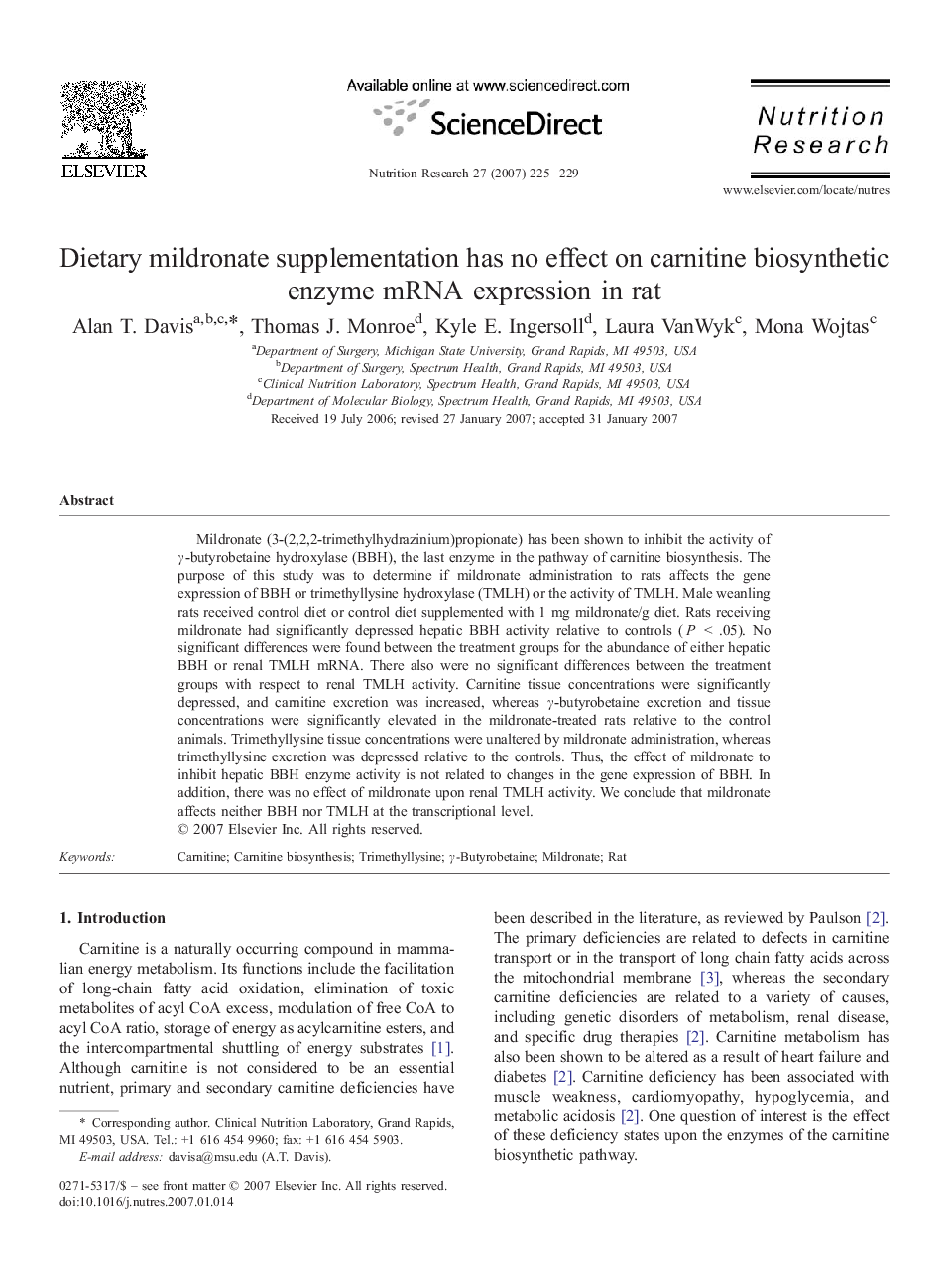| Article ID | Journal | Published Year | Pages | File Type |
|---|---|---|---|---|
| 2809852 | Nutrition Research | 2007 | 5 Pages |
Abstract
Mildronate (3-(2,2,2-trimethylhydrazinium)propionate) has been shown to inhibit the activity of γ-butyrobetaine hydroxylase (BBH), the last enzyme in the pathway of carnitine biosynthesis. The purpose of this study was to determine if mildronate administration to rats affects the gene expression of BBH or trimethyllysine hydroxylase (TMLH) or the activity of TMLH. Male weanling rats received control diet or control diet supplemented with 1 mg mildronate/g diet. Rats receiving mildronate had significantly depressed hepatic BBH activity relative to controls (P < .05). No significant differences were found between the treatment groups for the abundance of either hepatic BBH or renal TMLH mRNA. There also were no significant differences between the treatment groups with respect to renal TMLH activity. Carnitine tissue concentrations were significantly depressed, and carnitine excretion was increased, whereas γ-butyrobetaine excretion and tissue concentrations were significantly elevated in the mildronate-treated rats relative to the control animals. Trimethyllysine tissue concentrations were unaltered by mildronate administration, whereas trimethyllysine excretion was depressed relative to the controls. Thus, the effect of mildronate to inhibit hepatic BBH enzyme activity is not related to changes in the gene expression of BBH. In addition, there was no effect of mildronate upon renal TMLH activity. We conclude that mildronate affects neither BBH nor TMLH at the transcriptional level.
Related Topics
Life Sciences
Biochemistry, Genetics and Molecular Biology
Endocrinology
Authors
Alan T. Davis, Thomas J. Monroe, Kyle E. Ingersoll, Laura VanWyk, Mona Wojtas,
